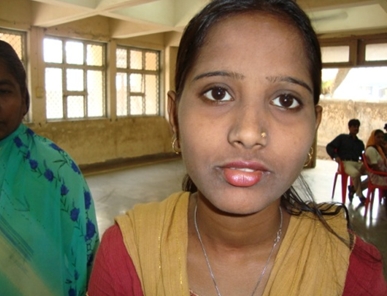AmeriCares India recently partnered with Karunya Trust to provide health screenings, medicines and other aid to vulnerable women and girls. The groups set up temporary health clinics to reach a severely underserved community on the outskirts of Mumbai.
“Most of our patients in this community live a hand to mouth existence. They are so poor that they do not seek medical help due to the fear of losing their daily wages,” said Dr. Purvish Parikh, Vice President and Managing Director of AmeriCares India Foundation. “Providing medical care close to home is practically the only way the women and children in this community can receive treatment for their illnesses and injuries.”
The temporary clinics are in high demand. In one day, Dr, Parikh and his colleagues examined 185 patients. Thanks to donated medications and supplies, we were able to give our patients any medicines they need for free.
“Most of the people we treat earn less than $3 a day, there is no way they could ever afford to pay for even the most basic medicines,” said Dr. Parikh.
The temporary clinic was organized for people who live in a Mumbai slum called Mulund. Most of the women and teenage girls attending the clinic find work as maids and domestic servants.
One of the patients, fifteen-year-old Ramapriya*, had to drop out of school to help support her family. In addition to working with her mother as a maid, she takes care of her family’s housekeeping and takes care of her five younger brothers and sisters.

Both of Ramapriya’s hands were covered with a painful rash. On examination, she had a red rash on her palms and cuts on her fingers. It was painful; detergents and cleaners made the pain much worse. When we suggested she should avoid cleaning products, she sighed sadly and said, “I have no other option but to live with this. Who will do the housework? There is no way to avoid it”.
Luckily, Ramapriya was otherwise given a clean bill of health. She received medicines to treat the allergic reaction and counseling on how to reduce exposure to detergents and chemicals. AmeriCares India partners at Karunya Trust will follow up with her case.
* name changed to protect patient privacy
